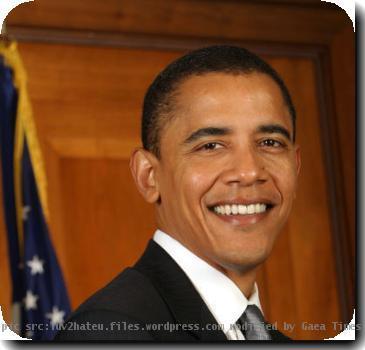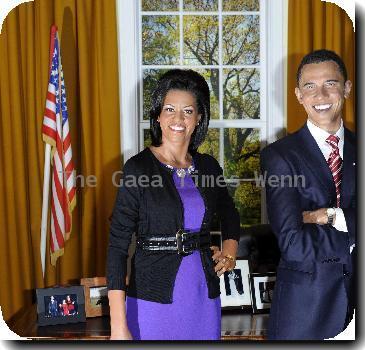In White House deal, BP guarantees $20 billion to pay oil victims’ claims, chairman apologizes
By Ben Feller, APWednesday, June 16, 2010
Obama: BP agrees to $20B fund; chairman apologizes
WASHINGTON — After intense negotiations, BP on Thursday bowed to President Barack Obama’s demand for a $20 billion fund to compensate victims of the disastrous oil spill in the Gulf of Mexico. The humbled chairman of the giant British company apologized to the American people for the horrendous accident.
BP is suspending its dividends to shareholders for the rest of this year to help pay for the costs, said chairman Carl-Henric Svanberg.
Obama announced the agreement after a four-hour meeting between White House and BP officials, with the president participating for various portions.
He also announced the company had agreed to set up a separate $100 million fund to compensate oil rig workers laid off as a result of his six-month moratorium on deepwater drilling.
“The structure we are establishing today is an important step toward making the people of the Gulf Coast whole again, but it will not turn things around overnight,” Obama said. He said the vulnerable fishermen, restaurant workers and other people of the Gulf “are uppermost in the minds of all concerned. That’s who we’re doing this work for.”
Likewise, Svanberg, speaking for a company that has been assailed from every corner for the past two months, said, “I hear comments sometimes that large oil companies are — are greedy companies or don’t care, but that is not the case in BP. We care about the small people.”
After an initial 20-minute session at the beginning of the meeting, Obama and Svanberg met privately in the Oval Office for about 25 minutes, said White House spokesman Robert Gibbs. The president did not meet separately with Tony Hayward, BP’s outspoken CEO whom the president has suggested he would fire if he could.
White House energy adviser Carol Browner said the meeting began with “an apology” from Svanberg. “It was not something we asked for.” She said during the long meeting “there were sticking points. We had to take breaks at times. There were times when each side wanted to just talk among themselves.”
The claims system sets up a formal process to be run by lawyer Kenneth Feinberg, who oversaw payments to families of victims of the Sept. 11, 2001, terrorist attacks. Instead of vague promises by BP, there will be a White House-blessed structure with substantial money and the pledge that more will be provided if needed.
“This is about accountability. At the end of the day, that’s what every American wants and expects,” Obama said.
The news was applauded in the Gulf — a rare positive development in a terrible two-month period since the April 20 explosion that killed 11 workers and unleashed a flood of oil that has yet to be stemmed.
Company officials spoke outside the White House after the meeting.
Svanberg announced suspension of the next quarterly dividend — totaling about $2.6 billion and scheduled for June 21 — and said the company would not declare any dividend for the rest of the year.
And he expressed sorrow for victims of the spill. “This tragic accident … should have never happened,” he said, and he also used the occasion to “apologize to the American people.”
BP is to pay $5 billion a year over the next four years to set up the $20 billion fund.
Obama emphasized that the $20 billion was “not a cap” and that BP would pay more if necessary.
BP’s total potential liabilities, including cleanup costs, victims’ compensation and civil fines, are breathtaking to consider and could stretch into tens of billions of dollars above the $20 billion fund.
Also, civil penalties can be levied against the company under a variety of environmental protection laws, including fines of up to $1,100 under the Clean Water Act for each barrel of oil spilled.
The $20 billion amounts to somewhere between $169 and $313 per gallon of oil spilled so far, based on calculations that the federal government has made. So far, the oil spill has dumped between 63.8 million and 118.4 million gallons into the Gulf.
The eight-week disaster in the Gulf, with oil still pouring from the broken well, is jeopardizing the environment as well as the livelihoods of tens of thousands of people across the coastal areas of Louisiana, Mississippi, Alabama and Florida.
BP has taken the brunt of criticism because it was the owner of the well and was leasing the Deepwater Horizon rig that sunk. But when the day of reckoning finally comes, BP may not be the only one having to pay up. That’s because Swiss-based Transocean Ltd. owned a majority interest in the rig. Anadarko Petroleum, based in The Woodlands, Texas, has a 25 percent non-operating interest in the well.
Word of the fund was well received on the Gulf Coast. Applause broke out during a community meeting in Orange Beach, Ala., when Mayor Tony Kennon announced the agreement.
“We asked for that two weeks ago and they laughed at us,” Kennon said. “Thank you, President Obama, for taking a bunch of rednecks’ suggestion and making it happen.” Obama visited Orange Beach on Monday.
In Washington, Senate Majority Leader Harry Reid, D-Nev., also sought to take some credit. “While this fund will in no way limit BP’s liability, it is a good first step toward compensating victims,” he said. Reid and other Senate Democrats proposed a $20 billion BP-financed fund earlier in the week.
Feinberg, the official who will direct the effort, is currently known as Obama’s “pay czar,” setting salary limits for companies getting the most aid from a $700 billion government bailout fund. He also ran the $7 billion government compensation program after the 2001 terrorist attacks. It was a job that lasted nearly three years as he decided how much families should get, largely based on how much income victims would have earned in a lifetime.
As pay czar, Feinberg has capped cash salaries at $500,000 this year for the vast majority of the top executives at the five major companies that received bailout funding: American International Group, GMAC Financial Services, Chrysler Financial, Chrysler and General Motors.
The president met at midday with the top BP leaders to press the London-based oil giant to pay giant claims.
Wednesday’s White House meeting came the morning after Obama vowed in a TV address that “we will make BP pay for the damage their company has caused.”
Obama said that during his private conversation with the BP chairman, he stressed that “for the families that I met with down in the Gulf, for the small business owners, for the fishermen, for the shrimpers, this is not just a matter of dollars and cents, that a lot of these folks don’t have a cushion.”
When the chairman is talking to shareholders or is in meetings in the BP boardroom, Obama said he told Svanberg, the BP leader should “keep in mind those individuals, that they are desperate, that some of them, if they don’t get relief quickly, may lose businesses that have been in their families for two or three generations. And the chairman assured me that he would keep them in mind.”
An Associated Press-GfK poll released Tuesday showed 52 percent now disapprove of Obama’s handling of the oil spill, up significantly from last month and about the same as President George W. Bush’s rating after Hurricane Katrina. Most people — 56 percent — think the government’s actions in response to the oil disaster really haven’t had any impact on the situation.
Associated Press writer Harry Weber in Houston, Jay Reeves in Orange Beach, Ala., and Seth Borenstein, Kenneth Thomas, Martin Crutsinger, Darlene Superville, Daniel Wagner and Jennifer Loven in Washington contributed to this story.
Tags: Alabama, Barack Obama, Coastlines And Beaches, District Of Columbia, Dividends, Government Pay, North America, Personnel, United States, Washington



